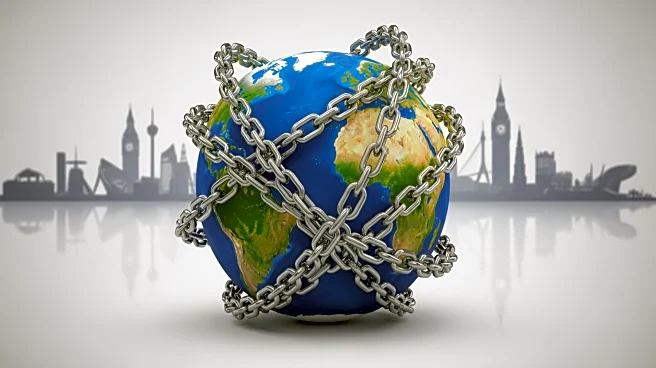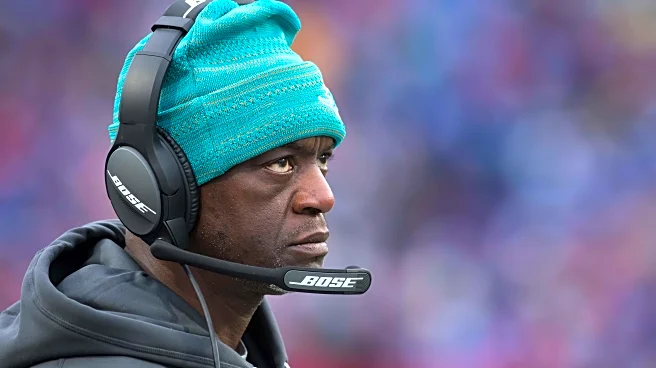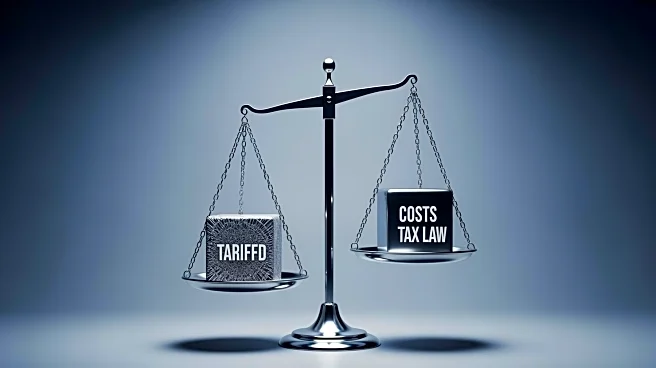What's Happening?
Shein, an online fast fashion retailer founded in 2008 by Chris Xu, has rapidly grown into a global fashion giant. Known for its affordable and trendy clothing, Shein's business model relies on a network
of third-party manufacturers in China and an on-demand production system that quickly responds to consumer trends. This model allows Shein to offer low prices and a vast array of products, shipping to over 150 countries. However, the company's rapid growth has sparked concerns about its environmental impact and ethical practices, including allegations of copyright infringement and data privacy issues.
Why It's Important?
Shein's rise highlights significant challenges in the fast fashion industry, particularly regarding sustainability and ethical production. The company's model, which emphasizes speed and low cost, contributes to environmental degradation through high carbon emissions and waste. Additionally, Shein faces scrutiny over labor practices and intellectual property rights, raising questions about the long-term viability of its business model. As Shein prepares for a potential IPO, these issues could impact its reputation and regulatory compliance, affecting its market position and consumer trust.
What's Next?
Shein is reportedly considering a public offering, with potential listings in the US or UK. This move could bring increased scrutiny from regulators and investors, particularly concerning its supply chain practices and environmental impact. The company may need to enhance transparency and address ethical concerns to maintain its growth trajectory and appeal to socially conscious consumers. Additionally, Shein's expansion into new markets and potential IPO could influence the broader fast fashion industry, prompting competitors to reevaluate their practices.
Beyond the Headlines
The ethical and environmental challenges faced by Shein reflect broader issues within the fast fashion industry, where rapid production cycles and low prices often come at the expense of sustainability and fair labor practices. As consumer awareness of these issues grows, companies like Shein may face increased pressure to adopt more responsible business models. This shift could lead to significant changes in the fashion industry, with potential implications for global supply chains, labor standards, and environmental policies.









